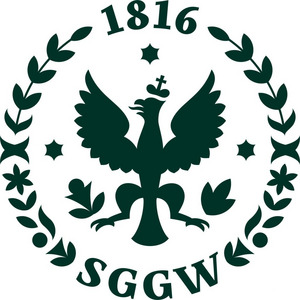SGGW-WULS - Warsaw University of Life Sciences
The Warsaw University of Life Sciences is the oldest agricultural and natural sciences university in Poland, dating back to 1816. It is a thriving academic centre that enjoys recognition and constant interest from young people and teachers in Poland and abroad, and is valued for its care for the quality of education, faithfulness to the best university traditions, openness to change and dynamic development.
The University offers 40 fields of study (including 9 taught in English): from natural sciences and technology to veterinary medicine, social and economic studies. There are nearly 16,000 students on full-time, part-time, doctoral, postgraduate and international exchange programmes.
The modern research centres and laboratories at our disposal, as well as the presence of outstanding experts, allow us to educate, conduct world-class research and transfer the results to the economy, which has an impact on innovation and progress in, among other things, agriculture, the food industry and medicine, and contributes to the growing importance of Polish science in the world.
Our headquarters are located in the Ursynów district of Warsaw, but we also have centres outside the city that enable us to carry out research, experimental work, internships and field exercises. In addition, we have leisure centres in picturesque locations, which are excellent places for organising conferences, scientific and creative meetings and recreation for our employees and students.
Role in the project
Katarzyna Bączek
I work at the Department of Vegetable and Medicinal Plants, Warsaw University of Life Sciences. My field of interest includes both wild and cultivated species of medicinal and aromatic plants (MAPs). Currently, I am the curator of the MAP collection at WULS - SGGW, which is part of the Polish Gene Bank of Utility Plants (I am a member of the MAP working group within ECPGR). My research is concerned with the influence of internal and external factors on the yield and quality of herbal raw materials, the introduction of wild-growing MAPs into cultivation, both domestic and foreign, as well as the selection and breeding of MAPs. I cooperate both with farmers growing herbs and with agricultural extension centres in Poland. I also carry out research on organic production of herbs for the Ministry of Agriculture and Rural Development.
In COST CA23123 I am a member of the Management Committee (MC). I also participate in working group 1, 3 and 5 of the Action.

 tap and then scroll down to the Add to Home Screen command.
tap and then scroll down to the Add to Home Screen command.